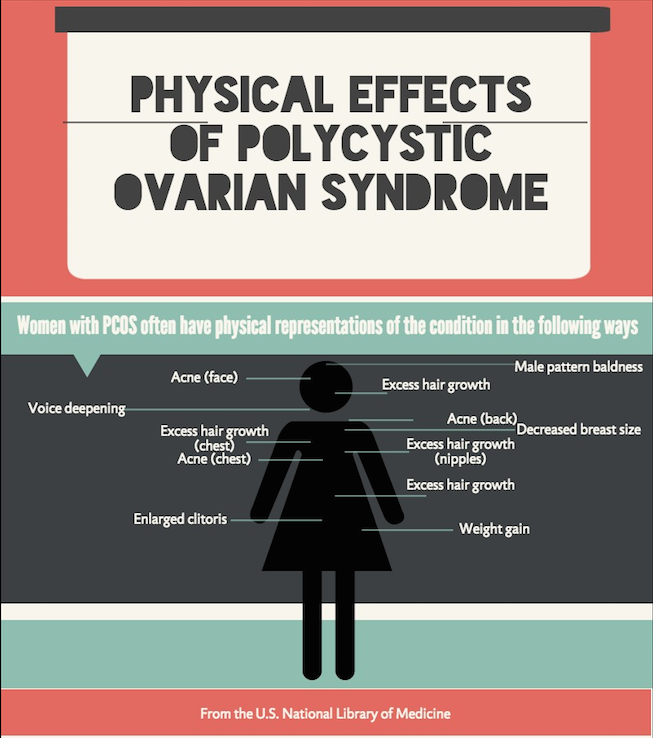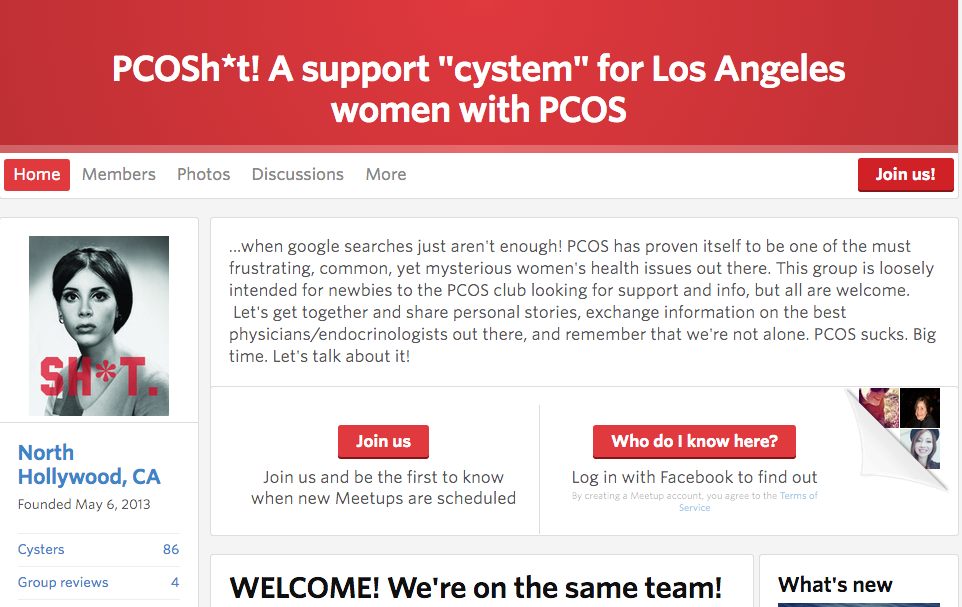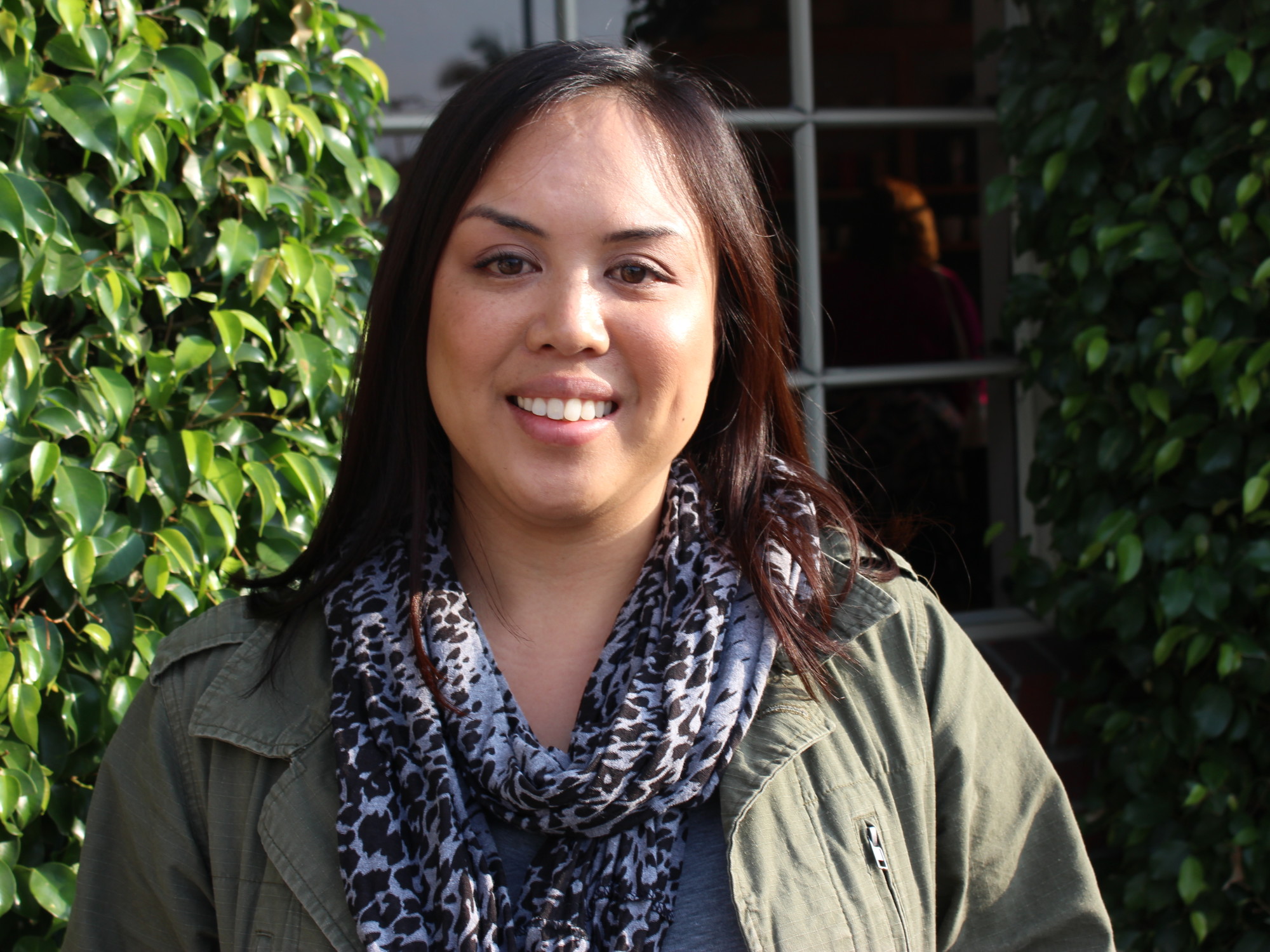All cysters are not biological
Four distinct looking women sit together at a round table in a brick coffee shop in North Hollywood.
The conversation is polite initially and seems to fit with the campy female singer-songwriter tunes that play overhead.
A white woman who sports a pixie blonde hair cut and small, hoop nose ring is the smallest in size of the group. She openly expresses some anxiety about getting married in April.
“We want to have a family. I’m going to be 32 in July, so we have no time to waste. We’re going to wait about a year and then we’re going to start trying to have a kid naturally, of course, at first,” Emily Laflin says sipping her gourmet tea. “But we both know there’s a chance that we won’t be able to or that we might have to do IVF or some other option, so it’s kind of a mystery.”
The other three nod understandingly as they all have polycystic ovarian syndrome (PCOS).
Polycystic ovarian syndrome is a hormonal imbalance that may lead to infertility, weight gain, and cause women to experience symptoms outside of “the feminine pattern” such as excessive hair growth and male-pattern baldness, says Dr. Lyra Gillette, an OBGYN and physician specialist at Watts Health Center.
Dr. Gillette explains that unlike traditional women of reproductive age who ovulate and have regular menstrual periods, women with PCOS do not due to “chronic anovulation,” the inability to ovulate naturally.

“About two to five percent of women are affected by this condition,” says Dr. Gillette, meaning up to 7.8 million women have PCOS.
A common marker of PCOS in young women is beginning her monthly cycle late.
“If a girl doesn’t have her period by age 13, she probably has to be checked,” says Dr. Gillette.
Laflin began her period at the age of 16, but was not formally diagnosed with PCOS until she was 26.
She created the Meet-Up group PCOS**t! in 2013 as a support “cystem” for other women with the condition in Los Angeles. After a particularly difficult night with her PCOS, Laflin says she wanted something other than an online forum to discuss how she felt.
“Coming from a place of feeling so exasperated myself, I knew that everyone who would find this group would be relieved, just the way that I was,” says Laflin. Since the group’s inception, over 70 “cysters” have joined the Meet-Up group.

Priscilla Sobalvarro is one such “cyster.” Her PCOS journey began in 2010 when her doctor first diagnosed her.
“I felt like I didn’t know where to start. PCOS has so many fronts that you can take— there’s the nutrition, the aesthetic part. So I didn’t know where to start until last November,” says Sobalvarro.
The Valley native searched online and found the Meet-Up group, as well as another blog called PCOS Diva for support. Through the web, Sobalvarro found not only a community of women who understood her, but also different supplements to help manage her symptoms.
She says her biggest difficulty with PCOS is the hair loss and since being diagnosed more than 60 percent of her hair fell out.
“When your hair starts to go, that’s when you pay attention and that’s when you kind of wake up,” she says. Sobalvarro continued, “I take 8-10 vitamins a day, some of them I take twice a day. I take a whole-food multivitamin, fish oil, chromium, cinnamon, turmeric, vitamin D3, B12 and a biotin.”
“Cyster” Emelie Saguinsin says while living with PCOS has its frustrating moments, especially when it comes to her “yo-yoing” weight, she appreciates how much knowledge is available to people about the condition but wants more.
“Even though there are a lot of resources and women are writing books about it, it’s still not enough. This is the only group in LA… and we need more,” says Saguinsin.
Laflin’s thought process behind the Meet-Up group was to attack this lack of information and provide women with the chance to converse and provide one another with more.
“It’s never a good time to have this disease because this disease sucks but, if you’re going to have it, today is a much better time to have it than 15 years ago. I feel very fortunate that people are learning more about it, like the discussion and the dialogue about it is increasing,” says Laflin.
Sheila Jones* agrees even though her upbringing with PCOS varies greatly with that of women diagnosed today.
“I don’t think PCOS gets enough credit for how difficult it is and how much it can shape a young life. And looking back now, I wish I had had the support and the knowledge people can gain today that wasn’t available in the 80s for a single, young woman and that was just hard.”
Jones says having PCOS shaped most of her interpersonal relationships, both romantic and familial. After two miscarriages and two failed engagements, she finds it difficult to open up very easily to others.
“It affected every part of my life when it came to family, reproduction, how I dealt with people, [and] how I felt about myself,” says Jones.
But Jones feels fortunate enough to be a member of PCOS**t! since she can use her past experiences with the condition to hopefully help others; that is one of Laflin’s primary goals with setting up the group.
“Because PCOS is always throwing you new problems too, it still provides support for me. It’s not like now I’m got all of the solutions and everything’s great,” says Laflin.
**********************
‘Cause this is too much for me to hold. This is too much for me to hold.
Ingrid Michaelson’s “Are We There Yet?” plays as the women finish their drinks and prepare to head back to their daily lives.
Sheila suggests the next Meet-Up be a walk around Lake Hollywood and the other women nod enthusiastically. Some head back home to boyfriends, husbands, or fiancés. Others to work.
Most of the women leave with some notes or tips on how to further regulate their PCOS symptoms, whether by drinking spearmint tea to decrease hair growth or knowing to ask a doctor to prescribe Metformin, an insulin medication that also works to control hormones and help overweight women with PCOS to lose the pounds easier.
The cysters exchange embraces and depart.
Home, home, home.
* Name has been changed.
